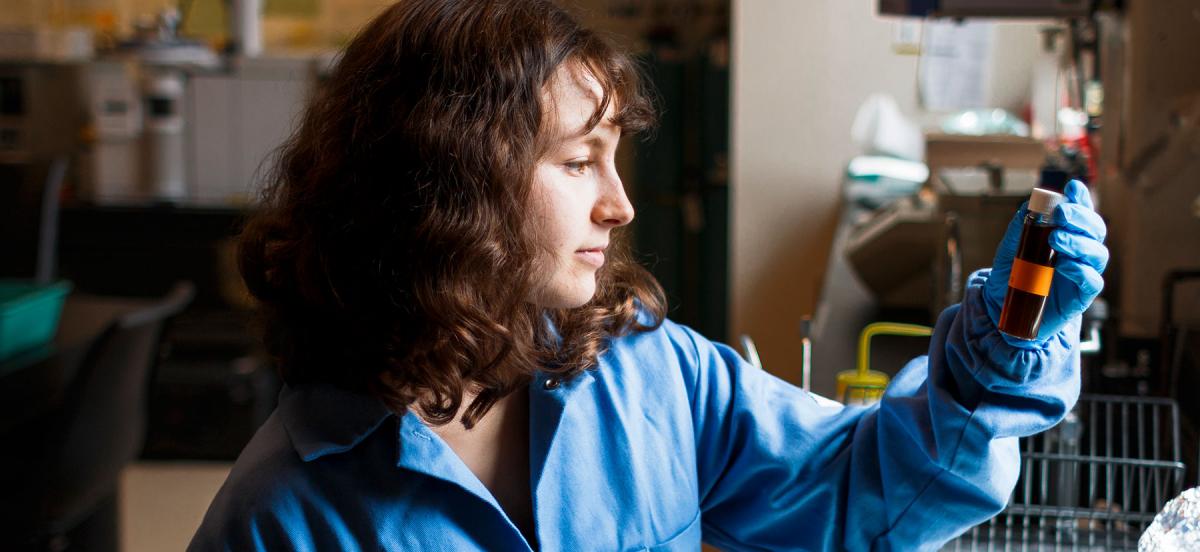Summer Centered: Emma Bullock '19 Investigates Social Collapse in Honeybee Hives

Emma Bullock '19 eyes a vial of liquid in Associate Professor of Chemistry and Environmental Studies Helen White's lab. Photo by Alexandra Iglesia '21.
Details
This summer, the chemistry major is working with Associate Professor of Chemistry and Environmental Studies Helen White to investigate colony collapse disorder in honeybee hives.
In Emma Bullock’s eyes, one of the major advantages of a chemistry degree is its versatility.
“There are many different ways one can use chemistry to explore the world,” says the rising senior.
Her chosen course of exploration? Colony collapse disorder in honeybee hives, which has been an ongoing problem for beekeepers in the United States for more than 20 years. Colony collapse disorder, as Bullock explains, occurs when the resident worker bees inexplicably abandon their queen and the colony’s immature bees. So far, the cause remains unknown—and, given that over a third of the world’s crops depend on pollination to thrive, this is an issue that needs to be solved.
It’s one that the chemistry major and German minor has devoted her entire academic year —and now the summer break— to researching. Thanks to funding from the Koshland Integrated Science Center’s Frances Velay Women’s Science Research Fellowship Program, Bullock is working in Associate Professor of Chemistry and Environmental Science Helen White’s lab this summer, as she has for the past two years, to analyze the results of wet lab experiments she conducted in the fall.
While those experiments involved extracting chemicals from honeybee samples, this time around there’ll be much less risk of getting messy. Bullock’s primary tools this summer aren't test tubes or syringes but computer software and statistical analysis methods, both of which she’s using to “read” chemical markers of honeybee health. Despite the technical nature of this type of research, Bullock welcomes the challenge.
“This opportunity to do research on an issue that has very tangible consequences for our environment has been an incredible experience,” Bullock says—and it’s one she wants to continue.
Looking ahead to next year, she says that she'll most likely write her senior thesis on the results of her experiments, as well as apply to graduate programs with a focus on either analytical chemistry or environmental engineering so that she can continue her research in this area beyond college. Most of all, though, Bullock, wants her work to stay grounded in real-world applications.
“Many chemists are interested in learning about chemicals and the ways in which we can manipulate them,” she says, “[but] I prefer seeing how we can use chemical signatures that already exist to inform our understanding of broader issues.”
"Summer Centered” is a series exploring our students’ Center-funded summer work.



